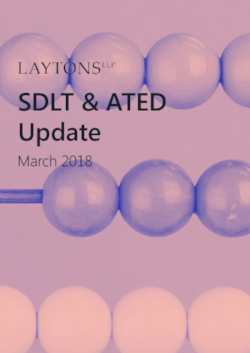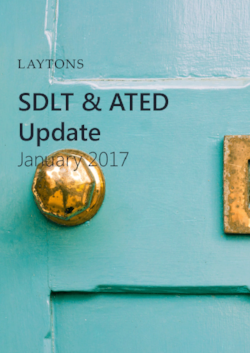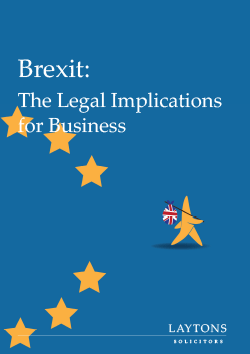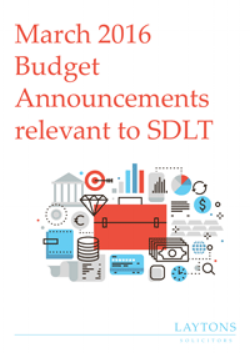
Tax advisers must now understand and advise on increasingly complex anti-avoidance rules, including the new rules which allow the UK tax authority to demand up-front payment of disputed tax where they are challenging a scheme. We strive to achieve what is practical and possible and draw attention to the real risks.
Marc Selby heads our Tax Group, which covers the full range of direct and indirect taxes. We regularly work with colleagues in other practice areas, particularly Corporate, Real Estate, Private Client, Intellectual Property and Employment, to provide practical and commercial solutions. We are also experienced in working with the client’s own advisers, often other professionals who may be solicitors or accountants, in providing technical tax support on transactions and structures on which they are advising.
A significant part of our practice includes assisting other professionals, including solicitors and accountants, on a consultancy basis on the tax aspects of transactions on which they are advising.
We have broad experience of cross-border transactions and expertise in direct and indirect tax matters.
Our expertise
We advise across a wide spectrum reflecting the breadth of our firm-wide practice.
We frequently advise on the tax aspects of:
corporate transactions and structures, including mergers and acquisitions, de-mergers, reconstructions, private equity transactions and joint ventures
property transactions and structures, including stamp duty land tax, annual tax on enveloped dwellings, VAT and capital allowances
remuneration and benefits – employee share and share option schemes, employee benefit trusts, remuneration planning and taxation of expatriate employees (inbound and outbound)
cross border issues – inbound and outbound
Our experience:
advising a Guernsey-based Student Accommodation Fund on the capital allowances, stamp duty land tax and VAT aspects of the disposal of its investment portfolio for consideration exceeding £400m, including working with the fund’s solicitors, accountants and financial advisers in negotiating and agreeing the tax provisions of the sale agreement
advising an English limited partnership fund on the stamp duty land tax and VAT aspects in connection with the disposal of a commercial property investment to a pension fund for consideration of £135m, including working with the purchaser’s advisers in preparing joint instructions to leading Tax Counsel
advising on the tax aspects of the disposal of a company specialising in the provision of information, news and research in global base and premium metal markets for consideration of approximately £15m, including advising on the PAYE and NIC issues in connection with the exercise of share options in conjunction with the sale
advising on the de‑enveloping of high-value residential properties
advising a major US insurance company on the UK tax implications of its proposed investment in an English limited partnership fund
Key Contact
Related Expertise
Our Team
News & Insights
UK insurance and financial services businesses operating in the EU are due to lose their right to passport their Regulatory authorisations to another EU State on 31st December 2020.
This update comments on the latest developments including the shortening of filing and payment window to 14 days from the effective date, what is a “major interest”?, bare trusts and first time buyer’s relief and the Supreme Court decision in Project Blue.
This update comments on the latest SDLT and ATED developments including first time buyer’s relief, higher rates (or 3% surcharge) for additional dwellings (HRAD), SDLT Manual updated to incorporate guidance on HRAD...
Employment lawyers and HR teams are well acquainted with the routine dance involved in the negotiation of settlement agreements. However, it is important to note that HMRC has decided to make some changes which will affect some of the steps taken when negotiating exit payments.
This update comments on latest developments including: higher SDLT rates on purchases of additional residential properties: what counts as a “major interest”? and residential property: whether land which adjoins a dwelling forms part of its “grounds”.
HMRC’s guidance on the higher rate, originally published in March 2016, was updated in November 2016. Those who have not yet read the updated guidance are advised to do so.
Companies that develop video games in the UK, are able to make savings on their corporation tax bill through the Video Games Tax Relief. The Relief can therefore be highly beneficial.
In this briefing we tackle one of the biggest and most uncertain of all Brexit topics: what will happen to our laws after we leave?
The Autumn Statement, presented by the Chancellor on 25 November 2015, included some significant announcements on SDLT on which we commented previously.
On 28th December 2015 the government published a consultation document on the proposal, previously announced by the Chancellor in the Autumn Statement on 25th November 2015 ...
























